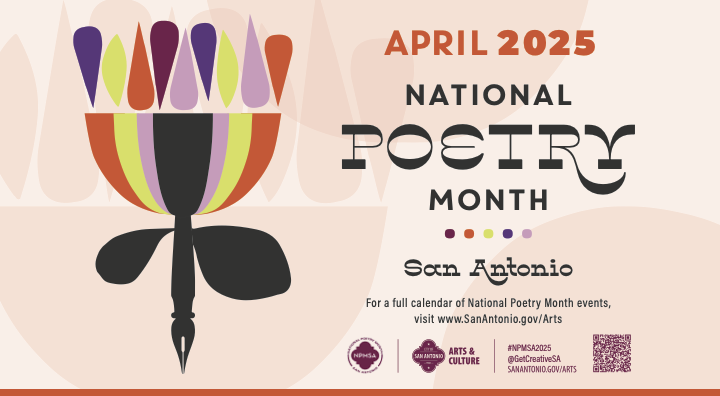A very important historical event occurred on Sunday, September 8, 2024, which marked the 124th anniversary of the birth of Adela Velarde Pérez, also known as La Adelita. When I was growing up in my beloved Barrio El Azteca in Laredo, Texas, during the 1940s and 1950s, I often heard the song, “La Adelita,” that was sung by Jorge Negrete, in my mother’s Spanish radio station XENU or the other Mexican radio station XEBK, both being broadcast from across the Río Grande in Nuevo Laredo, Tamaulipas, Mexico. Actually, the song, “La Adelita,” was heard all over the barrio and I am sure all over Laredo. In a big way, we all grew up hearing this song, which was the most famous corrido of the Mexican Revolution and knowing some of the lyrics. And I am sure that many Mexican American families, who were living along the border during this time, and also in other parts of South Texas, like in San Antonio’s West Side, which is comprised of Mexican and Mexican American families, knew about “La Adelita,” and thus it became very much a part of our cultural, social, and historical Mexican heritage.
“La Adelita”
Si Adelita se fuera con otro
La seguiría por tierra y por mar
Si por mar en un buque de guerra
Si por tierra en un tren militar.
Toca el clarín de campaña la guerra
Sale el valiente guerrero a pelear
Correrán los arroyos de sangre
Que gobierne un tirano jamás.
Y si acaso yo muero en campaña
Y mi cuerpo en la sierra va a quedar
Adelita por Dios te lo ruego
Con tus ojos me vayas a llorar
Ya no llores querida Adelita
Ya no llores querida mujer
No te muestres ingrata conmigo
Ya no me hagas tanto padecer.
Me despido querida Adelita
Ya me alejo de mi único placer
Nunca esperes de mí una cautela
Ni te cambio por otra mujer
Soy soldado y mi patria me llama
A los campos que vaya a pelear
Adelita, Adelita del alma
No me vayas por Dios a olvidar
Por la noche andando en el campo
Oigo el clarín que toca a reunión
Y repito en el fondo de mi alma
Adelita es mi único amor
Ya me despido querida Adelita
De ti un recuerdo quisiera llevar
Tu retrato lo llevo en el pecho
Como escudo que me haga triunfar
At that time, all I knew was that this woman, “La Adelita,” was a popular person during the time of the Mexican Revolution (1910-1920). And photographs I saw depict her as a soldadera, a woman soldier who provided medical help and sometimes a fighting role who supported Francisco Madero against the Mexican federal government forces.
My interest in La Adelita was rekindled a couple of weeks ago when an old dear friend from my hometown of Laredo, knowing that I love history, reminded me of Adela’s upcoming birthday. Consequently I became interested again in knowing more about Adela Velarde Pérez, who was the famous “La Adelita,” and to know also who wrote the lyrics to the song. I did some research and found out the following historical information. The song, “La Adelita,” was named after Adela Velarde Pérez, who was born in Ciudad Juárez, Chihuahua, on Saturday, September 8, 1900, and this past Sunday, September 8, 2024, marked the 124th anniversary of her birthday. Her father was Rafael Bernabé Velarde Samaniego and her mother was María de Jesús Pérez.
On Friday, February 7, 1913, at the tender age of 13 years, and against the will of her parents, Adela Velarde Pérez enlisted in the Cruz Blanca (the Mexican Red Cross) during the Mexican Revolution. She provided medical care for General Francisco Madero’s soldiers who were wounded in battle, reloaded rifles, and provided food to the soldiers, and when necessary, also join in the fighting. She eventually joined the military army of Francisco “Pancho” Villa. During this time, Adela Velarde Pérez had a love affair with Antonio Gil del Río Armenta, a sergeant with the revolutionary forces of General Venustiano Carranza, and they had one son named Antonio. And Antonio Gil del Río Armenta was the one who wrote the lyrics of “La Adelita,” in her honor and to pay homage for her tremendous work during the revolution. He later died during the bloody battle in Torreon in 1914. The song, “La Adelita” became the national anthem for the revolutionary troops who sang it before battle. Moreover, the women soldiers (soldaderas) who fought in the Mexican Revolution and who played a crucial role in battle and were vital in the success of the revolution received their popular name of Las Adelitas.
After the Mexican Revolution, Adela Velarde Pérez worked in Mexico City as a mecanógrafa (typist) in the General Post Office. On Saturday, February 22, 1941, she was officially recognized by the Mexican Secretary of Defense as a veteran of the Mexican Revolution and was awarded the Decoration of Revolutionary Merit. And in 1962, she was made a member of the Legión de Honor Mexicana (Mexican Legion of Honor) and awarded a life pension. Her son, Antonio, that she had with Antonio Gil del Río Armenta, passed away during World War II.
When Adela was 65 years old, she met and married an old friend from her revolutionary days, Colonel Alfredo Villegas, a widower, on Monday, November 1, 1965, and she moved in with him who lived in Del Río, Texas. They lived happily together, even though both were sick, but she had a more serious illness. He interned her in a San Antonio hospital for more than five months until she passed away during the night on Saturday, September 4, 1971, from ovarian cancer at the age of 70 years old, just four days before her 71st birthday. He brought the body back to Del Río and buried her in the San Felipe Cemetery. Eight years later, on Wednesday, November 28, 1979, her husband, Colonel Alfred Villegas, died in Del Río at the age of 89 and is also buried in the San Felipe Cemetery.
In 2014, Mexico’s Foreign Ministry and the Del Río City officials paid the first formal official tribute at her gravesite by placing a plaque in Adela’s honor at the foot of the tombstone.
Five years later, on Wednesday, November 20, 2019, on the 109th anniversary of the Mexican Revolution, the town of Del Río, Texas upgraded the gravesite by removing the old headstone and replacing it with a striking, unique bronze sculpture of Adela, which depicts the fallen soldadera lying in repose, and draped in her traditional blouse and flowing skirt, shrouded in roses and a belt of bullets. Alongside the bronze sculpture is the existing plaque.
Feliz Cumpleaños,
Adela












I enjoy reading the short story,written by Mr.Gilberto Quezada,as been from LaRedo myself,it good to keep up with the old days of LaRedo.
I was wondering if you have an email address for Gilberto as a kid I knew his father Pete,the bus driver,from my years at St.PETERS sCHOOL.